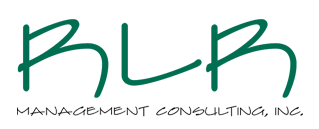10 Keys to Operational Excellence
We are providing this update to you from a previous blog post, given the uncertain times we are all facing. Today, more than ever, efficient operations are essential to Financial Institutions. When this article was originally posted, I never thought it would be read by folks predominately working at home! It was intended for in-house operations. All still holds true with respect to operational efficiencies and attempting to achieve operational excellence within your operations center and branch walls, but we must also have operational policies and procedures for off-site operations that are efficient, up to date, and effective. These off site operations Policies and Procedures may reside in your Business Continuity Plan or within your operational policies and procedures. Regardless of where, they should be reviewed for content, operational effectiveness and accuracy as we may very well be approaching a new normal.
ByMitch Razook,President & COO
RLR Management Consulting, Inc.
Many Financial Institutions are focused on improving their operational efficiencies and lowering their operating efficiency ratio (a company’s operating expenses as a percentage of revenue). This measure is often used to determine the efficiency of a company’s management by comparing operating expenses to net sales.
To be successful in developing operational excellence, an organization must be honest and straight forward with itself asking the following questions, and following these simple yet effective thought processes:
- Can we change our approach to processing?
- Are we willing to change and not do things “the way we always have?”
- Ask yourself, “how many times is a transaction touched?” How many pieces of paper are required? If it is more than two, it is too many!
- Ask how many levels of approval are required? Again, if it is more than two, the process should be reviewed.
- Determine if you have the right technology solutions to more effectively handle operational activities. If you do not, develop a business case to either justify or deny the technology solution.
- Ask if the process or operation is necessary. Are you doing something that can be avoided? Are you spending excessive time for minimal return?
- The first answer to operational excellence should NOT be to add to head count. In fact, this should be your last option!
- Ask yourself “am I changing with the times?” Are we spending operational dollars where they need to be spent?
- Ask yourself “are we too risk adverse?” Are you afraid to take on some additional risk for bottom line returns?
- Ask if you can grow your business doing things the way you currently are doing them?
These 10 thoughts sound very basic, yet our experience has proven that change is hard! Human nature tells us that we get into a comfort zone and do not think about how to improve, change, and make things more efficient. We focus on today and do not consider tomorrow. We have seen organizations rely too heavily on vendors to fix operational inefficiencies when the inefficiencies are due to how things are handled operationally, and NOT how your system may be set-up. We see organizations make excuse after excuse as to why change is not appropriate or needed. We also see those organizations that strive for operational excellence are most successful financially, are perceived to have top management in place, and share a common bond of satisfied and happy employees and customers. We encourage everyone to at least consider the ten thoughts above.
RLR can help you build a roadmap to operational excellence. If you are interested, we would welcome the opportunity. Contact us at info@rlrmgmt.com
